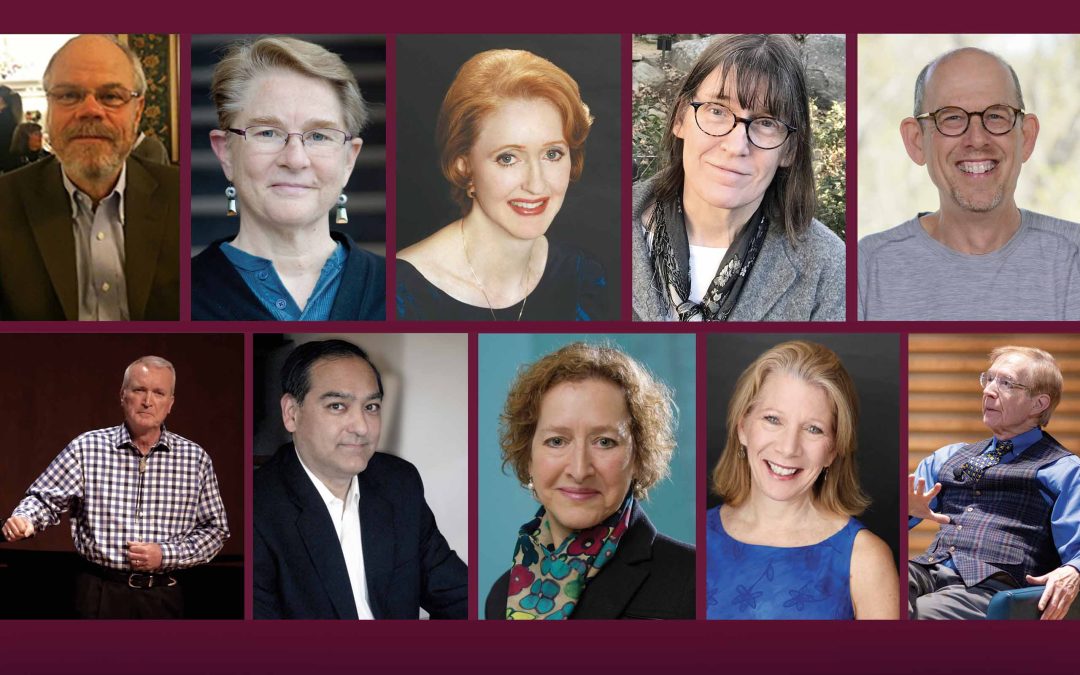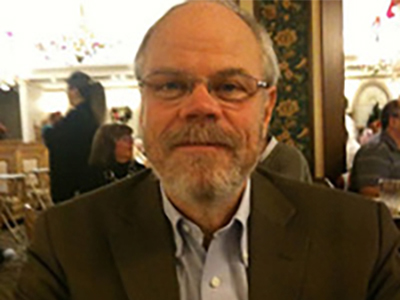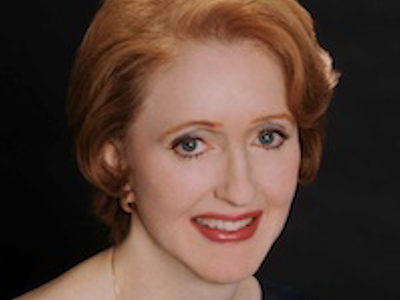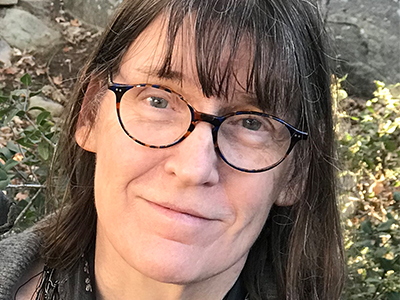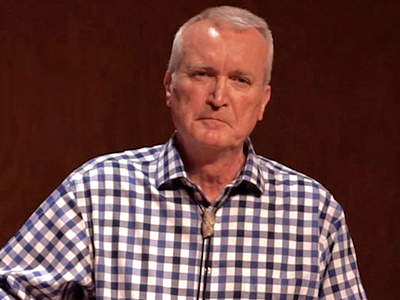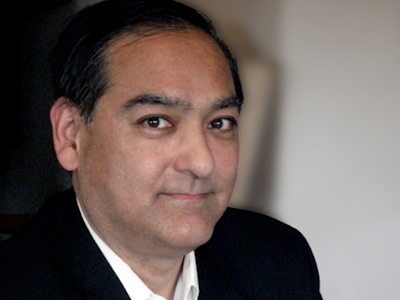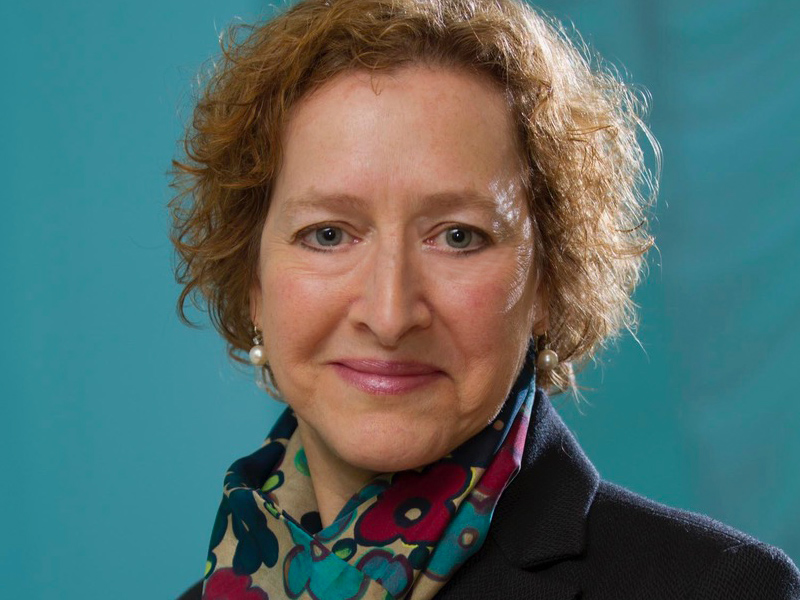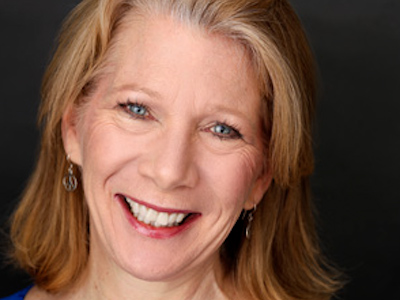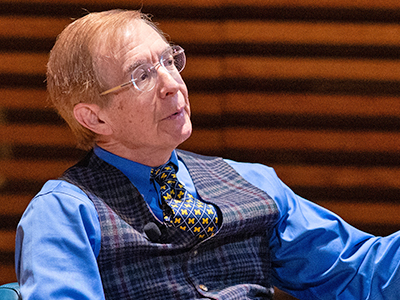James M. Borders
James M. Borders, professor emeritus, retired from the Department of Musicology in June 2024 after serving for 44 years at SMTD. His research has focused on medieval vocal music, particularly the development of plainchant. Besides chant, he has held an abiding interest in rock and contemporary popular music. He received a Fulbright award for study in northern Italy and major research grants from the National Endowment for the Arts, the National Endowment for the Humanities, and the American Council of Learned Societies.
Mary Cole
Mary Cole served as a lecturer, lighting designer, stage manager, and technical director for the Department of Dance from 1986 until her retirement in 2024. Over the course of her career, she has worked with most of the local dance companies, Ann Arbor Civic Theatre, Wild Swan Theater, and Plowshares Theatre Company. She has also served as the resident lighting designer for Ann Arbor Dance Works. Her work received an award from the Performance Network for best lighting design of Exits and Entrances, and she was an Annie Award nominee for her contributions to the local dance scene.
Katherine Collier
Katherine Collier, Eugene Bossart Collegiate Lecturer, taught in the Department of Piano, with a focus on collaborative piano, from 1985 to 2024. She has had a distinguished and versatile career as a soloist, chamber music artist, and accompanist. She has performed around the world, been a soloist with numerous orchestras, and collaborated with many renowned musicians. She toured extensively with her late husband, violist Yizhak Schotten, and together they founded the Maui Classical Music Festival and served as directors of the Strings in the Mountains Festival.
Patricia Hall
Patricia Hall, professor emerita, came to SMTD in 2011; she served as chair of the Department of Music Theory from 2011 to 2017 and retired from the department in May 2024. The recipient of two Fulbright Fellowships, she has authored and edited numerous books, and her articles and reviews have appeared in significant journals and edited volumes. She founded the online journal Music & Politics, serving as editor from 2007 to 2017, and is a past president of the Society for Music Theory. Her recent research on manuscripts at the Auschwitz-Birkenau State Museum garnered international media attention.
Andrew Kirshner
Andrew Kirshner, assistant professor emeritus, was jointly appointed by the Stamps School of Art and Design and by SMTD’s Department of Performing Arts Technology in 2001. He retired in December 2023. He is an accomplished composer, writer, director, and vocalist whose work explores the poetic interaction of music, image, sound, and story. He has received numerous awards and commissions, including three project fellowships from the National Endowment for the Arts, and an award from the American Academy of Arts and Letters, and his short films and videos have been screened at electronic music concerts and film festivals nationally and internationally.
Stephen Lusmann
Stephen Lusmann, professor emeritus, retired from the Department of Voice & Opera in May 2024 after serving for 25 years at SMTD. In 2020, he received the Harold Haugh Award for Excellence in Studio Teaching, and he has seen his students achieve great success performing professionally, winning prestigious competitions, and teaching at all levels. He has sung more than 40 leading roles with major opera houses and has performed at storied venues around the globe. Additionally, his work can be heard on many recordings, including the recently released Songs of William Horne.
Ramon Satyendra
Ramon Satyendra, associate professor of music, retired from the Department of Music Theory in December 2023, after having served for 22 years at SMTD. His research interests included music and mathematics, late nineteenth-century music, jazz, South Asian music, and compositional theory, and he has published widely within these areas of expertise. Over the course of his career, he served on the editorial board of several journals and has received numerous awards and fellowships in recognition of his work.
Louise Stein
Louise Stein, professor emerita, served for 36 years in the Department of Musicology, from September of 1987 until her retirement in December 2023. She is an authority on European, Spanish, and colonial Latin American music of the early modern era. In 1996, the American Musicological Society recognized Stein with the Noah Greenberg Award for “distinguished contributions to the study and performance of early music.” Her contributions to the field include numerous visiting faculty appointments and fellowship awards, and she has published and presented extensively throughout her career.
Nancy Uffner
Nancy Uffner, clinical associate professor emerita, taught in the Department of Theatre & Drama, with a focus on stage management, from September 1995 until May 2024. She is a proud longtime member of Actors’ Equity Association, with an impressive career spanning extensive regional theatre stage management work, national tour experience, and teaching roles at Northwestern University and Eastern Michigan University.
Brent Wagner
Brent Wagner, Arthur Thurnau Emeritus Chair and Robertson Emeritus Professor of Musical Theatre, was the first chair of the Department of Musical Theatre and served in that role for 32 years (1984–2016). He is credited with building the department into one of the top musical theatre programs in the world. Wagner retired from SMTD in 2016 and then, thanks to the Robertson Emeritus Professorship in Musical Theatre, returned to teach for several more years until his full retirement in 2024. In addition to his teaching, Wagner has directed musicals and revues throughout North America and collaborated with Sheldon Harnick on several projects. Through the courses he taught at SMTD, his mentorship, and his direction of the annual musical theatre senior showcase, Wagner has had a substantial impact on generations of students.
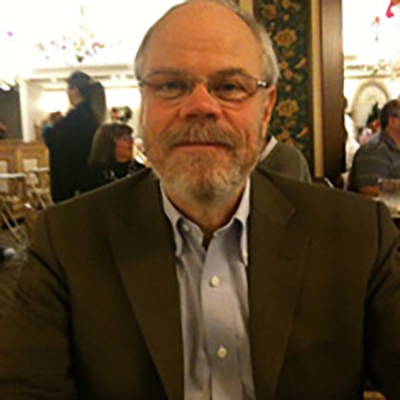
James Borders’s research focuses on medieval vocal music, particularly the development of plainchant. His edition of 11th-century chants from the northern Italian abbey of Nonantola was published by A-R Editions. Besides chant, Professor Borders has an abiding interest in rock and contemporary popular music. Borders has received a Fulbright award for study in northern Italy and major research grants from the National Endowment for the Arts, the National Endowment for the Humanities, and the American Council of Learned Societies.
Education
BM, DePaul University
MA, PhD, University of Chicago
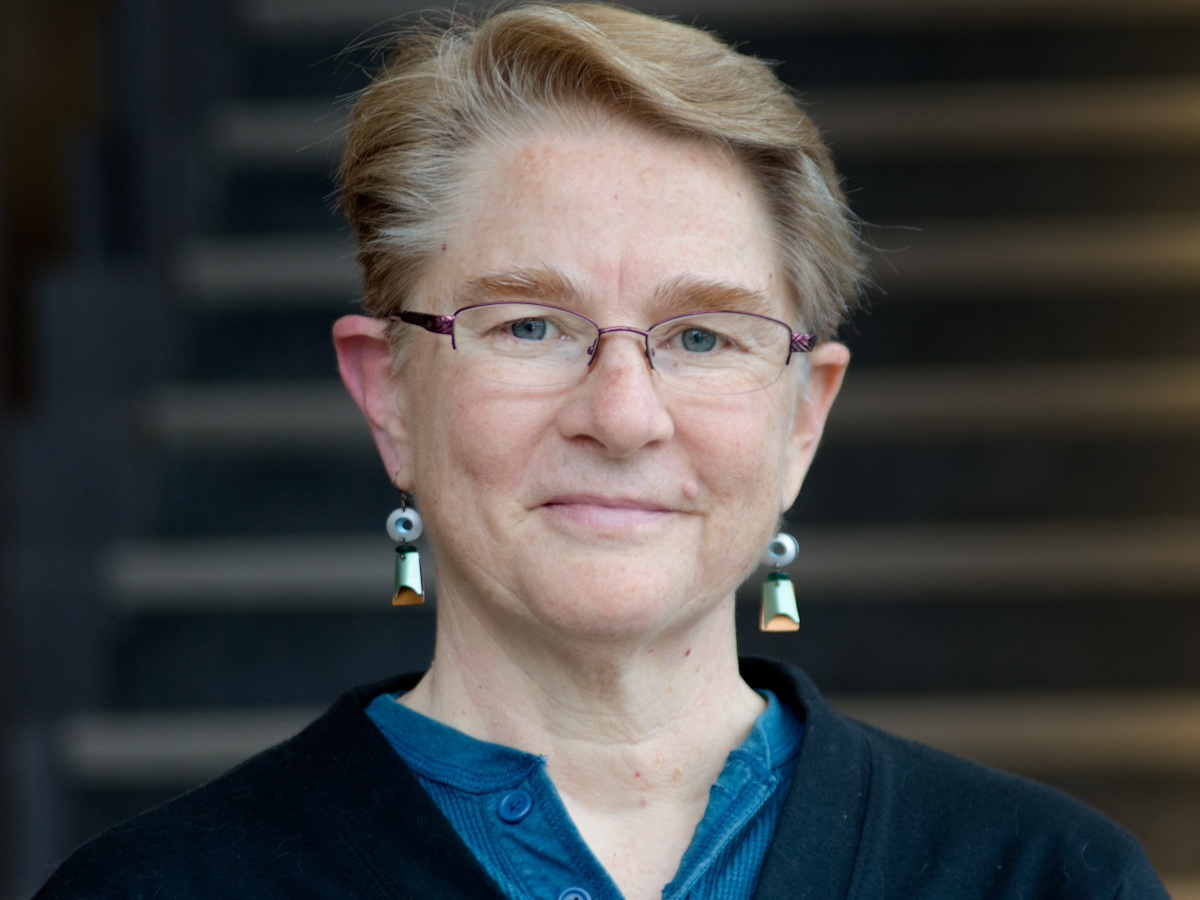
Mary Cole has served as a lecturer, lighting designer, stage manager, and technical director for the University of Michigan’s Department of Dance since 1986. She has also been the resident lighting designer for Ann Arbor Dance Works since then. Recently Mary received an award from The Performance Network for best lighting design of Exits and Entrances. In 1995 she was nominated for an Annie Award for her contributions to the local dance scene. In the past, she has had the pleasure of working with most of the local dance companies, Ann Arbor Civic Theatre, Wild Swan Theatre, and Plowshares Theatre Company. Recently Mary designed lights for Ann Arbor Dance Works’s New Season of Dances, Stephen Rush and Michael Rodemer’s opera Three Candles, and Performance Network’s production of Exits and Entrances. She received her BS in Dramatic Arts from Eastern Michigan University and did graduate work in lighting design at the University of Michigan.
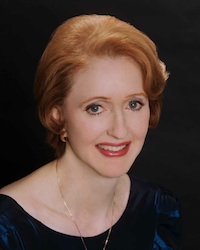
Katherine Collier has had a distinguished and versatile career as a soloist, chamber music artist, and accompanist. After her early training in Texas, she studied piano with Cecile Genhart and accompanying with Brooks Smith. She was awarded unanimously the Performer’s Certificate at Eastman. Professor Collier was the first prize winner of the National Young Artist’s Competition and the Cliburn Scholarship Competition and was the recipient of a Rockefeller Award. She won a Kemper Educational Grant to study at the Royal College of Music in London, England.
Collier has been a soloist with orchestras in Cincinnati, Dallas, Eastman-Rochester, and Houston, and is an active collaborator with many renowned musicians including Joshua Bell, Hilary Hahn, Ani Kavafian, Cho-Liang Lin, Andres Cardenes, Erling Bengtsson, David Shifrin, and members of the Tokyo, Emerson, Cleveland, Orion, Vermeer, Miami, Shanghai, and Ying Quartets.
She has performed around the world and appeared at recital halls in Europe such as Wigmore Hall and the Purcell Room (Southbank) in London, the Concertgebouw, the Brahms-Saal, and the Konzertsaal der Staatlichen Hochschule für Musik. She has presented concerts at Merkin Hall, the Phillips Collection, the Cleveland Museum of Art, the Dame Myra Hess Series in Chicago, and the Y Music Society in Pittsburgh. She performs at the Aspen Music Festival, Interlochen, Meadowmount, and Skaneateles. As an accompanist, Ms. Collier worked in the studios of Dorothy Delay at Aspen and Nathan Milstein and the BBC in London.
Collier tours extensively with her husband, violist Yizhak Schotten. They are founders and music directors of the Maui Classical Music Festival in Hawaii and music directors of the Strings in the Mountains Festival in Steamboat Springs. Ms. Collier appears with her husband on four compact discs on Crystal Records and has recorded with other artists on the Pandora, Pearl, Crystal, and Centaur labels. Ms. Collier previously taught at the universities of Washington, Northern Kentucky, and Wyoming.
Education
BM, MM, Eastman School of Music
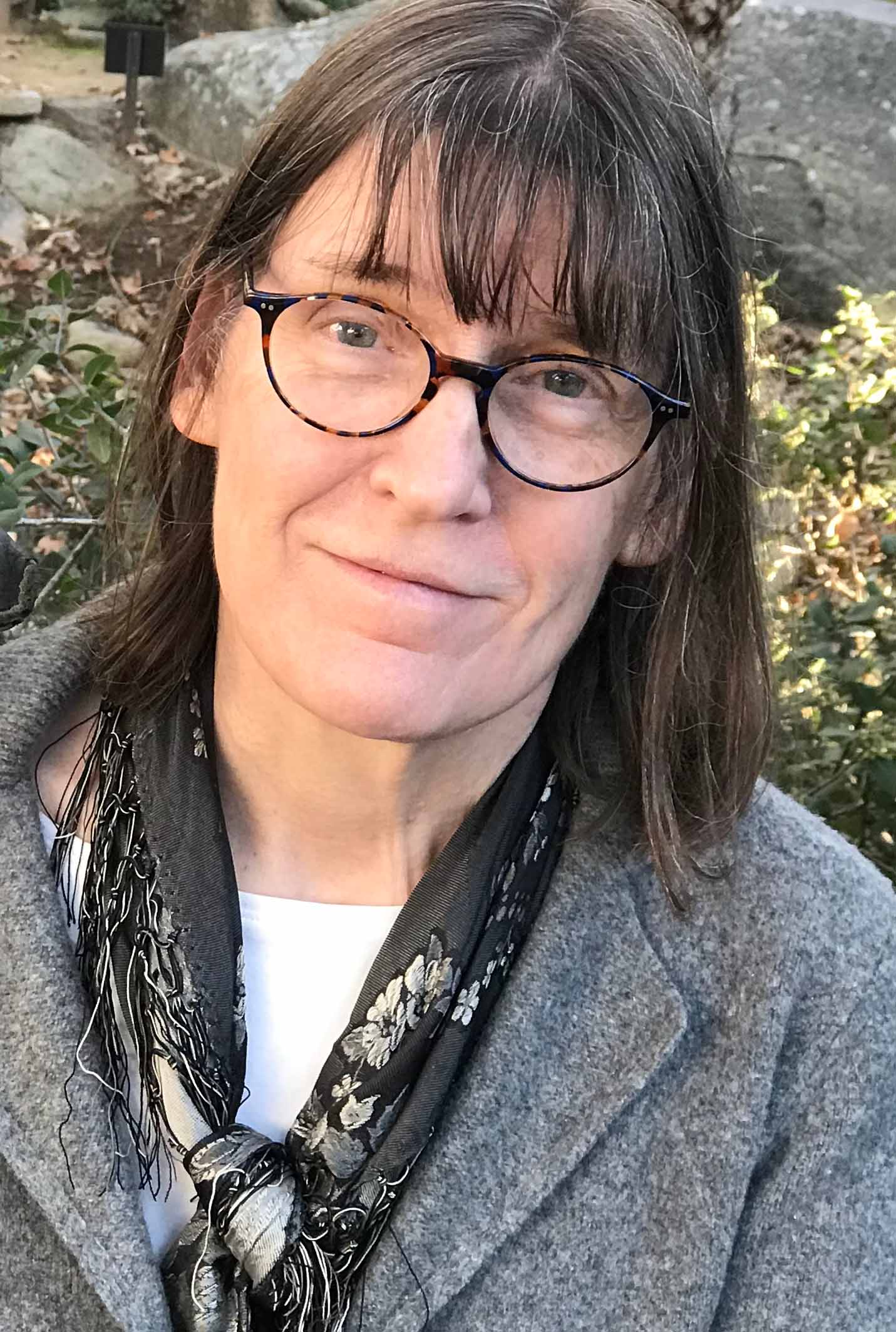
Patricia Hall (Ph.D., Yale University, 1989) taught at the University of California, Santa Barbara, for 25 years before coming to the University of Michigan as Professor and Chair of the Department of Music Theory (2011-2017). Hall is the author of A View of Berg’s Lulu Through the Autograph Sources (University of California Press, 1997, winner of the ASCAP Deems-Taylor Award), Berg’s Wozzeck (Oxford University Press, 2011), co-editor with Friedemann Sallis of A Handbook to Twentieth-Century Musical Sketches (Cambridge University Press, 2012) and general editor of The Oxford Handbook of Music Censorship (Oxford University Press, 2017).
Her articles and reviews have appeared in The Journal of Music Theory, The Musical Quarterly, Music Theory Spectrum, The International Journal of Musicology, Computing in Musicology, and a number of edited volumes. She received two Fulbright Felllowships for study in Vienna, and a grant from the Paul Sacher Foundation in Basel.
She founded the online journal Music & Politics and was editor from 2007 to 2017. She served as the president of the Society for Music Theory from 2019 through 2021. As a result of her research on manuscripts at the Auschwitz-Birkenau State Museum, Hall was interviewed on NPR, CBC, BBC and other venues. An Associated Press article describing her research appeared in 1100 news outlets in 22 countries, including The New York Times and The Washington Post.
She is currently writing a monograph on music in political films.
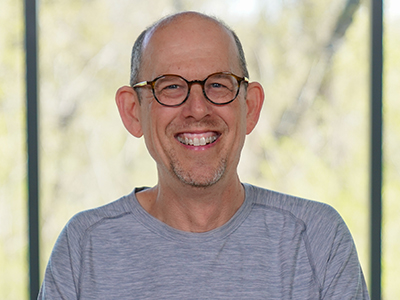
Andy Kirshner is a composer, writer, director, and vocalist whose work explores the poetic interaction of music, image, sound, and story. An accomplished filmmaker, jazz improviser, and media artist – as well as composer – Kirshner’s creative output ranges from lyric art song to multimedia performance, from bebop scat chorus to musical theatre, and from oratorio to experimental video. Some recent works include The Museum of Life and Death, a multimedia music-theatre piece based on the medieval Play of Everyman; Five Ways to Pass the Time, a video work commissioned by Michigan Public Television; Houdini Séance, a performance work for video projections, percussion, and live electronics; and An Evening With Tony Amore, a fractured musical memory play based on the life of Frank Sinatra and scored for a 35-piece jazz orchestra. Currently, Kirshner is producing and directing his first feature film, a political satire and “girl meets girl” musical called Liberty’s Secret.
Kirshner has received numerous awards and commissions, including three project fellowships from the National Endowment for the Arts, two fellowships at the University of Michigan’s prestigious Institute for the Humanities, commissions from Artserve Michigan and the Mary Flagler Cary Charitable Trust, and an award from the American Academy of Arts and Letters. His performance work has been presented by Dance Theatre Workshop and Performance Space 122 in New York City, and his short films and videos have been screened at electronic music concerts and film festivals both nationally and internationally.
Kirshner holds a DMA (1999) in music composition from the University of Michigan, where his principal teachers included William Bolcom, Evan Chambers, and Michael Daugherty. He also received a BM in saxophone performance from the New England Conservatory of Music (1983), and a degree in philosophy from Tufts University (1983). More recently, he has studied film directing and rehearsal technique with Judith Weston at the Two Lights Studio in Los Angeles.
Kirshner was jointly appointed by the Stamps School of Art and Design, where he taught video, and by the School of Music, Theatre & Dance, where he taught film scoring, sound design, and multimedia performance.
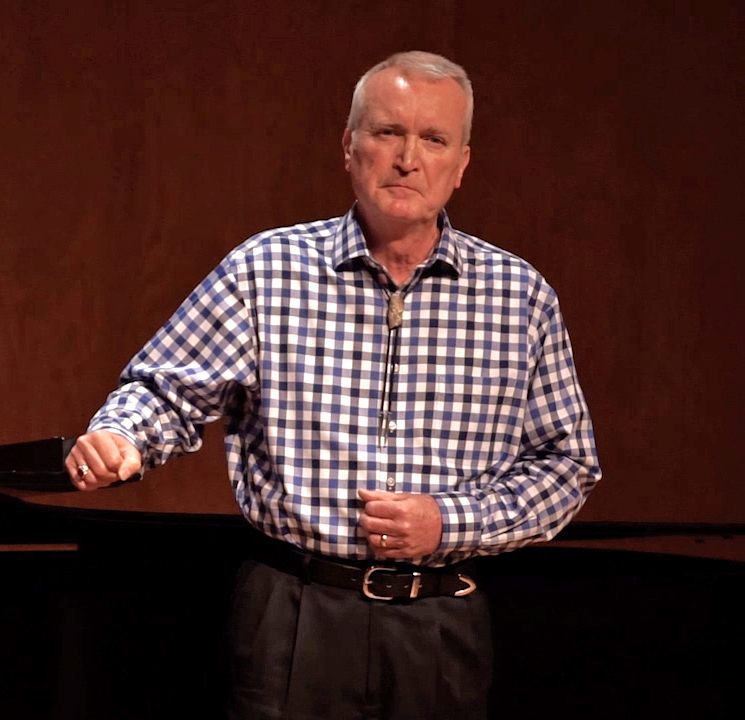
During the course of his rich international operatic career, baritone Stephen Lusmann has sung more than 40 leading roles with major opera houses including the Oper der Stadt Bonn, Opera de Monte Carlo, Stadttheater Luzern, Washington National Opera, Cincinnati Opera, Opera Company of Philadelphia, Boston Lyric Opera, Glimmerglass Opera, Fort Worth Opera, Florentine Opera, Opera Carolina, Opera Columbus, Anchorage Opera, Utah Opera, Opera Birmingham, Connecticut Grand Opera, Michigan Opera Theatre, Dayton Opera, Artpark, and tours with the New York City Opera. He has sung with important conductors and directors including Leonard Slatkin, Christopher Keene, Bertrand de Billy, Franco Zeffirelli, Gian Carlo Menotti, and Gian Carlo del Monaco.
As an active concert soloist, Lusmann has performed at venues including Carnegie Hall, Alice Tully Hall in Lincoln Center, and Hill Auditorium; festivals including the Anchorage Festival of Music, Chautauqua Institute, the Music Festival of Pettoranello (Italy), the Romanian/American Music Festival in Timisoara (Romania), and the Amalfi Coast Music Festival; and with numerous symphony orchestras including the Buffalo Philharmonic, Sinfonieorchester Luzern, West Virginia Symphony, Little Orchestra Society of New York, Canton Symphony, and Shreveport Symphony.
On recordings Lusmann may be heard in Richard Strauss’ opera Der Friedenstag recorded at Carnegie Hall on the Koch International label; Operngala recorded at the Konzerthaus Luzern, Switzerland on Tonstudio AMOS; and on E.E. Cummings: An American Circus, songs by Logan Skelton, recorded on the Centaur Records label. He recorded two more CDs of songs by Logan Skelton on the Blue Griffin label: Ohr Songs: The Mad Potter; Clyburn Songs: A Kind of Weather; and Anderson Songs: Through the Eyes of an Islander and can also be heard on the recently released CD Songs of William Horne.
Lusmann is a professor of voice at the University of Michigan School of Music, Theatre & Dance and the recipient of the 2020 Harold Haugh Award for Excellence in Studio Teaching. He was the principal voice teacher for the Fort Worth Opera Studio from 2010-17 and has been a member of the voice faculty at the Seagle Music Colony, the oldest summer vocal training program in the United States, since 2001. In addition, he has taught at Music in the Marché in Mondavio, Italy and has given master classes at the Conservatory of Timisoara (Romania), Anchorage Conservatory, Florentine Opera, Northwestern University, Carnegie Mellon University, and many other institutions.
Having completed his graduate degrees at the University of Cincinnati College-Conservatory of Music, Lusmann is carrying on the lineage of the master teachers Andrew White, Sidney Dietsch, and Giuseppe DeLuca. His students have had great success performing professionally in opera, concert, musical theatre, and young artist programs. They have also won prestigious international vocal competitions and are teaching in elementary, secondary, and higher education.
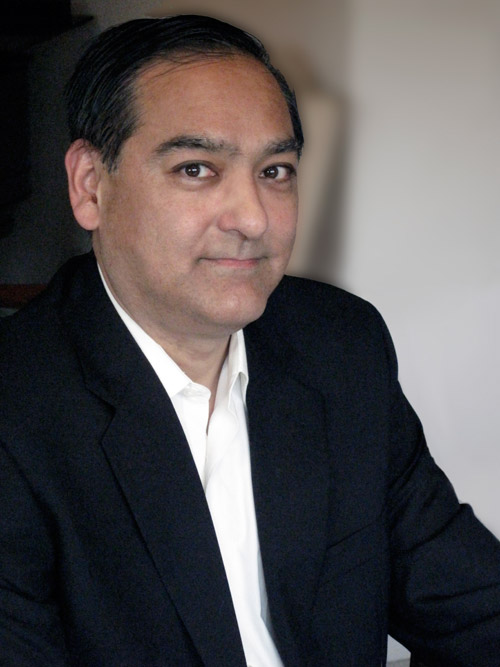
Ramon Satyendra holds a doctorate from the University of Chicago in music theory and history. Before coming to Michigan, he taught at Yale University and the University of Chicago. He currently serves on the editorial boards of The Journal of Mathematics and Music, Intégral, and Analytical Approaches to World Music.
Highlights of previous service to the field include Executive Committee of the Society of Music Theory, the editorial board of Music Theory Spectrum, and editor of the Journal of Music Theory. Among his awards are the Merten Hasse Award in Mathematics from the Mathematical Association of America and the Clauss Prize for Teaching Excellence in the Humanities from Yale University. He is a three-time fellow of the Mannes Institute for Advanced Studies in Music Theory. Satyendra’s research interests include music and mathematics, late nineteenth-century music, jazz, South Asian music, and compositional theory. He plays piano, organ, tabla, and guitar and has published in Music Theory Spectrum, Music Analysis, Journal of Music Theory, American Mathematical Monthly, and elsewhere.
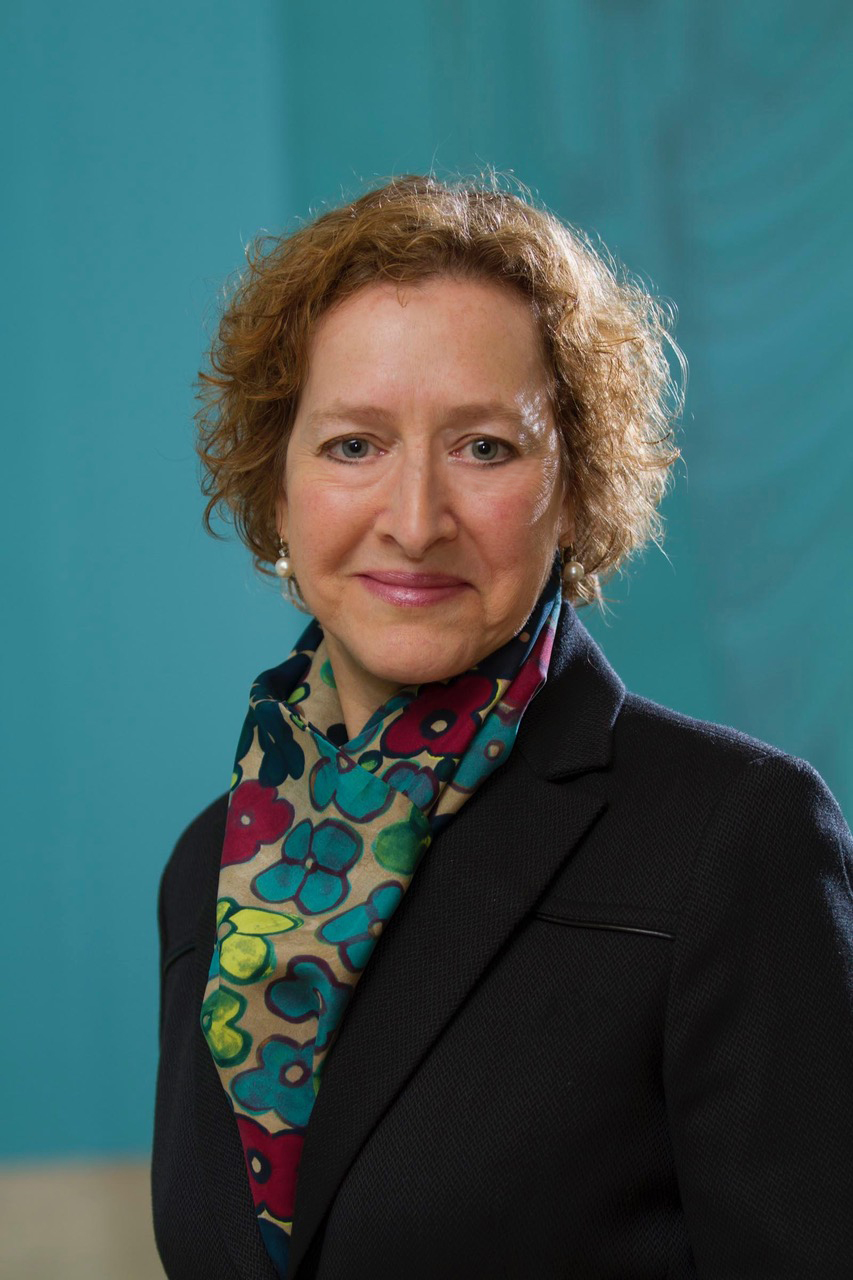
Professor Louise Stein is an authority on European, Spanish, and colonial Latin American music of the early modern era, with particular emphasis on theater music, the history of singing, opera, and keyboard music. She holds degrees from Oberlin Conservatory and The University of Chicago. She has held visiting faculty appointments at the University of North Carolina in Chapel Hill (1984-85), the Universidad Complutense in Madrid (1998), and The University of Chicago (1986-87 and 2006). She has received fellowships from the Fulbright-Hayes Commission, the American Council of Learned Societies (both junior and senior fellowships), the National Endowment for the Humanities (junior and senior fellowships), the Gladys Krieble Delmas Foundation, the American Philosophical Society, and the Committee for Cultural Cooperation between the United States and Spain.
In 1996 the American Musicological Society recognized Stein with the Noah Greenberg Award for “distinguished contributions to the study and performance of early music.”
She has published a long list of essays, and has given lectures, conference papers, and seminars in Europe, Latin America, the U.K., and the U.S. Her first book, Songs of Mortals, Dialogues of the Gods: Music and Theatre in Seventeenth-Century Spain (Oxford University Press, 1993), was awarded a publication subvention from the American Musicological Society, as well as the 1995 First Book Prize from the Society for Spanish and Portuguese Historical Studies. She subsequently produced an expanded second edition of Howard Mayer Brown, Music in the Renaissance (Prentice-Hall, 1999), which has since also been published in Croatian and Slovakian translations.
Stein has often collaborated with performers. Her work with Mary Springfels and the Newberry Consort produced the pathbreaking recording, ¡Ay amor! (Harmonia Mundi). Her performing edition of the first opera performed in the Americas, La púrpura de la rosa (Lima, 1701), by Tomás de Torrejón y Velasco and Juan Hidalgo, was published in Madrid in 1999 and produced by the U-M Opera Workshop with her guidance in 2006 as part of the conference she organized, “Opera in the Americas – American Opera,” in celebration of the 125th anniversary of SMTD. It had previously been used for the BMG Classics recording directed by Andrew Lawrence-King, for which she also served as artistic advisor. She has collaborated with Jordi Savall whose performances of the earliest extant Spanish opera, Juan Hidalgo’s Celos aun del aire matan, were informed by her research. Her critical performing edition of Celos aun del aire matan was issued by A-R Editions (2014) in the series Recent Researches in Music of the Baroque Era.
Dr. Stein is currently pursuing research for a book about “Giovanni Francesco Grossi ‘Siface,’ A Castrato Voice and the New Masculinity in Seventeenth-century Italian Opera,” supported by a grant from the U-M Institute for Research on Women and Gender. Her forthcoming monograph, The Marqués, the Divas, and the Castrati. Gaspar de Haro y Guzmán and Opera in the Early Modern Spanish Orbit, will appear as a 2023 open access publication from Oxford University Press, thanks to a TOME subvention from the U-M Library and the LSA Research Office. A Weiss-Brown Publication Subvention Award from Chicago’s Newberry Library supports the book’s color illustrations.
At U-M she has twice received full-year faculty fellowships from the Institute for the Humanities, and she is a past senior fellow of the Michigan Society of Fellows. She serves as an LSA Music advisor and has taught courses for Medieval and Early Modern Studies, Romance Languages and Literatures, and Latin American Studies.
In SMTD, Stein has taught courses and seminars about early modern music, music and politics, musical eroticism, early singing, the castrato, the music of Handel and Scarlatti, and early Hispanic music. The Rackham Graduate School in 2013 awarded her the John H. D’Arms Award for Distinguished Mentoring in the Humanities.
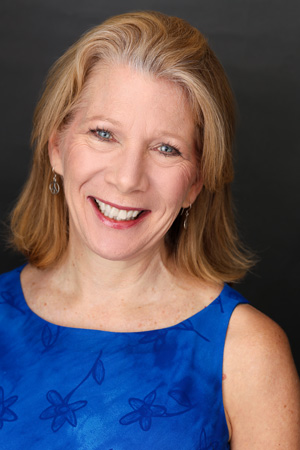
Nancy Uffner (she/her) is a proud longtime member of Actors’ Equity Association. Her regional theatre stage management work includes the MUNY, Weston Playhouse Theatre Company, Lythgoe Family Panto, Goodspeed Musicals, Music Theatre Wichita, the U-M Festival of New Works, Goodman Theatre, Steppenwolf, Actors Theatre of Louisville, Chicago Opera Theatre, Virginia Stage Co., Baltimore’s Center Stage, Granbury Opera House, and Cherry County Playhouse. Her national tour experience includes All Shook Up, Fame, Ken Hill’s Phantom of the Opera, South Pacific with the late Robert Goulet, and Camelot with the late Richard Harris. She has worked locally with the Peter Sparling Dance Company as well as various music and corporate events, and has taught stage management classes at Eastern Michigan University. Prior to U-M, Nancy taught at Northwestern University. She holds an MA from the University of Michigan and a BS with secondary teaching certification from Eastern Michigan University.
Education
BS, Eastern Michigan University
MA, University of Michigan
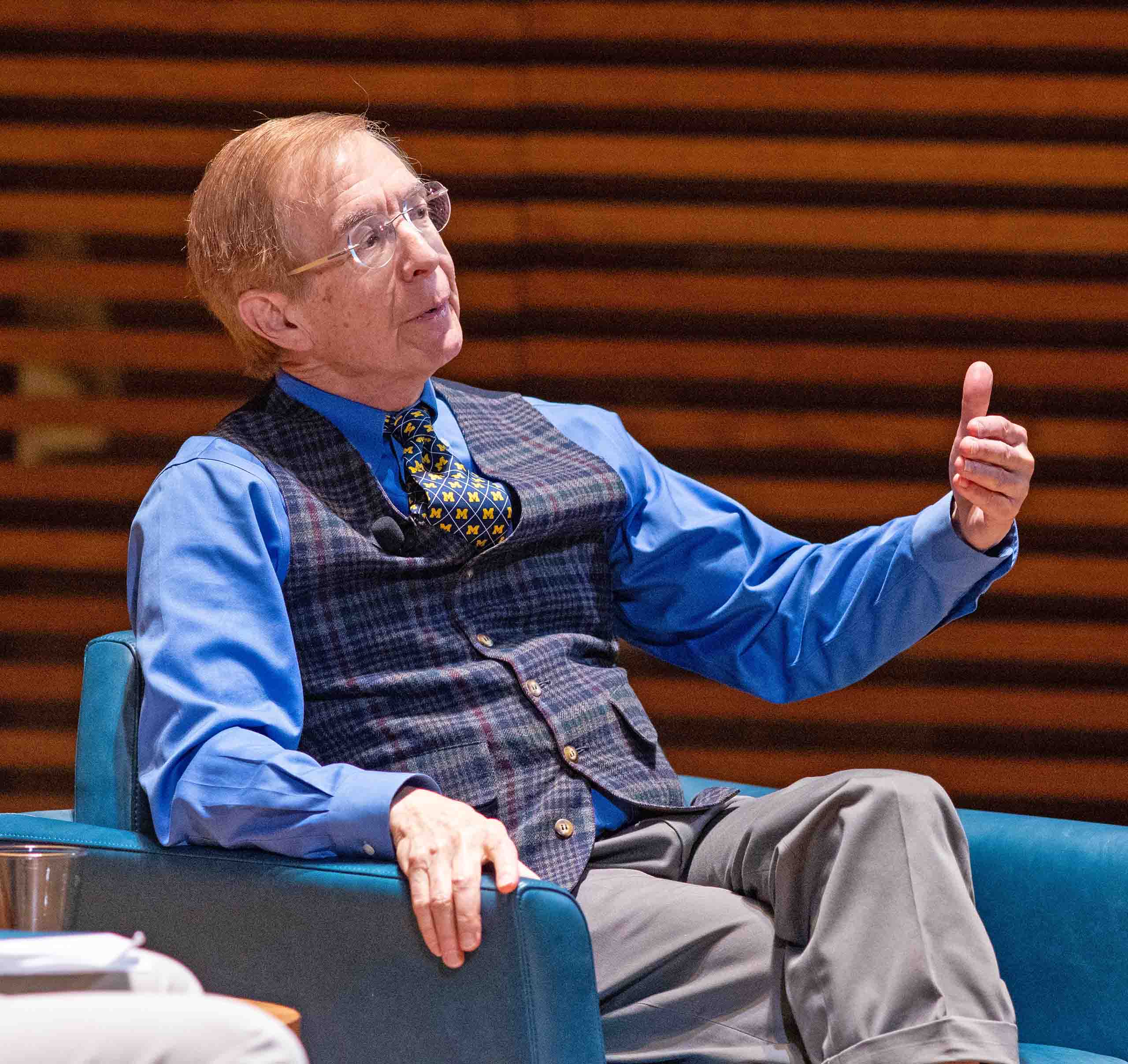
Brent Wagner was chair of the Department of Musical Theatre for 32 years and is credited with building the department into one of the top musical theatre programs in the world. Before joining the Michigan faculty in 1984 he taught at Syracuse University. He has directed musicals and revues throughout North America, from off-Broadway in New York to the Banff Center in Alberta, Canada. He has collaborated with Sheldon Harnick on numerous projects, including a new opera at the O’Neill Theater Center, as well as the world premiere of A Wonderful Life (music by Joe Raposo), and his recent musical Dragons, both of which were staged at the University of Michigan.
Wagner recently taught the first-year Introduction to Musical Theatre and the upper-level History of Musical Theatre courses. He holds an Arthur Thurnau Professorship, an award for outstanding instruction at the undergraduate level. Among many responsibilities, Mr. Wagner also directed the senior showcase, presented annually in New York City.

